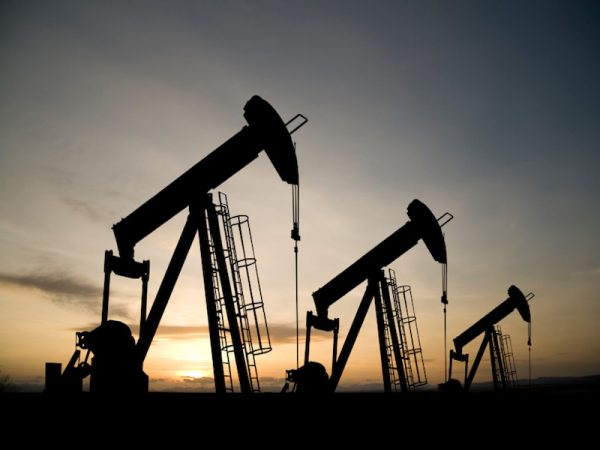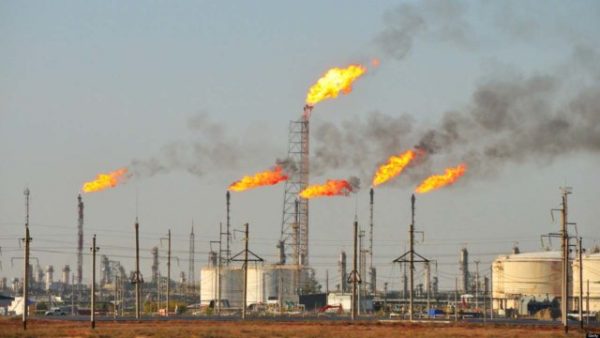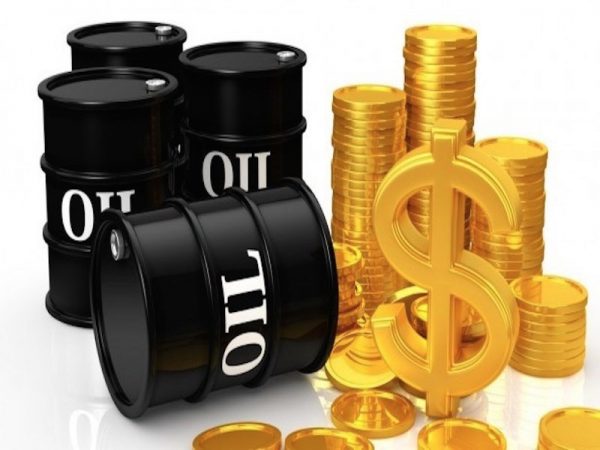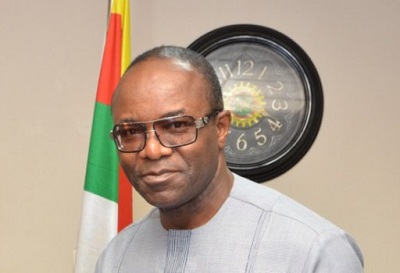Nigeria’s Oil and Gas Reserves Stagnate as Oil Majors Reduce Investment
- NNPC’s subsidiary records N6.11bn profit
Oil and gas industry experts have expressed deep concern over the drop in investment in oil and gas projects to lowest level in recent years, leading to the stagnation of the country’s oil and gas reserves.
Hard-pressed oil firms are said to be cutting back investment in the sector due majorly to delay in the passage of the Petroleum Industry Bill (PIB) and lack of incentives from the government.
However, in spite of dwindling investments, the Nigerian Gas Processing and Transportation Company (NGPTC), a subsidiary of the Nigerian National Petroleum Corporation (NNPC), has declared a profit after tax of N6.11 billion from its business of processing and transporting natural gas to its customers in 2017.
Checks have revealed that the only major discovery in recent years is ExxonMobil’s Owowo of about one billion barrels of reserves of crude oil because of a slowdown in exploration activities by oil firms.
Consequently, Nigeria’s oil reserves have stagnated at 36.18 billion barrels, as at the first quarter of 2018, according to the Minister of State for Petroleum, Dr. Ibe Kachikwu, who spoke at the recent Nigeria Oil and Gas (NOG) conference in Abuja.
The current reserves are less than the 37 billion barrels in 2010, despite the target of 40 billion barrels set by the federal government for 2010.
With the dwindling rate of discoveries, experts fear that Nigeria might lose her top-ranking position as Africa’s largest oil producer.
In recent years, most of the increase in oil production had come from existing fields, as only limited exploration wells have been drilled in recent years.
Expectations were that the oil price rebound would trigger more exploration activities in Nigeria, after years of investment cuts occasioned by youth restiveness and violence in the oil-rich Niger Delta, and the 2016 economic meltdown.
However, the delay in passage of the remaining components of the PIB and government’s failure to incentivise oil companies to invest in exploration, have dampened those projections.
Confirming the unprecedented drop in oil exploration, Chairman of Petroleum Technology Association of Nigeria (PETAN), an umbrella body for all oil services companies in Nigeria, Mr. Bank-Anthony Okoroafor said, “There are no major oil discoveries in the last 10 years. Our reserve without BOE is about 30 billion barrels. It is a shame. We had 37 billion barrels BOE reserves when Angola had less than two billion barrels and today Angola has proven reserves of more than 9.5 billion barrels of oil and 11 trillion cubic feet (tcf) of natural gas, while Ghana has grown from zero to about 0.7 billion barrels today.”
He added, “Nothing has been done especially in shallow waters where development is less costly. Everybody is punching and finding something. What is our rig count? Exploration wells have not been drilled for a long time now. We have been producing what we discovered and not adding.”
Okoroafor, who is Managing Director of Oilfield Services Company and Chief Executive Officer of CB Geophysical Solutions Limited, advised that the fiscal and community aspects of the PIB should be passed without further delay to restore investors’ confidence in the oil and gas sector.
“The fiscal and community aspects of the PIB should be passed without further delay. If you do not have a law place to secure investments, people will not come. We must as a country ensure full passage of the PIB and also ring fence exploration budgets,” he mentored.
Speaking in the same vein, another oil industry stakeholder, who also is into petroleum exploration, told THISDAY at the weekend that the dearth of investment resulted in the dwindling of Nigeria’s crude oil reserves.
The source, who would not want his name in print, said the reserves had been dropping because of the slowdown in exploration activities. He picked holes in the recent pronouncement by the Group Managing Director of the NNPC, Dr. Maikanti Baru, that the corporation planned to increase crude oil reserves by one billion barrels yearly to meet 40 billion barrels target by 2020.
“I watched Baru doing what the NNPC knows how to do best- setting targets that it never achieves. Recall that we have been in this journey to attaining 40 billion reserves and four million barrels a day production since more than two decades. What is our production today? Also, I know that reserves had dropped to about 30billion barrels because not much is happening in the exploration side. The reserves had since reduced; the NNPC did not get its figures right,” he said.
According to him, there is no sign of a recovery next year because of the general elections, the economic situation and government’s lackadaisical attitude to the oil sector, which remains the country’s economic mainstay.
The oil industry stakeholder stated that the dwindling crude oil discoveries was a bad sign for Nigeria’s future production levels.
Describing the situation as very worrisome, he urged that urgent steps be taken to boost upstream oil and gas investment in order to shore up the declining crude reserves.
However he noted that it was normal for some companies to adopt a wait and see approach to new line of businesses during the election year, but pointed out that new projects had been stalled over the years, due majorly to delay in passage of the oil and gas industry bill.
The NNPC had in 2004, set ambitious targets to grow oil production to 4million barrels per day and reserves to 40 billion barrels by 2010. But when it became obvious that these targets would not be achieved, it set a fresh 2020 deadline.
Indication that the target would remain a mirage, emerged when the Department of Petroleum Resources (DPR), which regulates the sector, revealed recently that the reserves were on the decline.
Specifically, the agency revealed that the reserves dropped by 961.47 million barrels between 2012 and 2016 alone.
Commenting on the drop in crude oil reserves at a recent energy forum, a director in the Department of Petroleum Resources (DPR) attributed the development to a reduction in oil exploration in the country.
He explained that some oil wells in the Niger Delta stopped producing after they attained maturity.
He stressed the need for increased oil exploration in order to shore up the dwindling reserves.
“Oil reserves are dropping and what we are supposed to do to boost them is to continue to explore for more oil,” he said.
It was projected that NNPC would invest $5.3 billion into the country’s upstream projects by 2020, while oil majors-Royal Dutch Shell Plc and Eni SpA would follow, with $4.7 billion and $2.8 billion, respectively.
But Nigeria’s bid to grow investment in oil and gas industry to as much as $40 billion in the next five years is being threatened by sundry issues, chief among them is delay in PIB passage, heightened insecurity, corruption and unfavourable government policies.
Kachikwu had also in March this year, admitted that inherent challenges were frustrating investment in the sector.
NNPC Subsidiary Declares N6.11bn Profit in 2017
Meanwhile, the Nigerian Gas Processing and Transportation Company (NGPTC), a subsidiary of the NNPC, has declared a profit after tax worth N6.11 billion from its business of processing and transporting natural gas to its customers in 2017.
The NGPTC said yesterday in a statement by the NNPC that it made the profit from processing and transporting about 292.91 billion standard cubic feet (bcf) of gas to its customers in domestic gas market, as well as exports.
It, however, explained that the volume of gas processed and transported was below the volume it planned for in its 2017 business target.
It said, in a statement by NNPC’s Group General Manager, Public Affairs, Mr. Ndu Ughamadu, “In the year under review total revenue generated from gas transmitted stood at N72.7 billion translating to 292.91 billion standard cubic feet of gas as against the planned 429.92 bcf thereby achieving 68 .13 per cent of its target.
“Profit before tax was N6.75 billion while profit after tax came to N6.11 billion within the period.”
According to the statement, NNPC’s Group Managing Director, Dr. Baru, also described the NGPTC during its 2017 Annual General Meeting (AGM) as an entity primed to deliver on its vision to be the natural gas processing and transportation company of choice in Nigeria.
Baru said the NNPC was relying on the NGPTC’s competence to deliver its 614 kilometres (km) Ajaokuta-Kaduna-Kano (AKK) gas pipeline project, which he noted would gulp $3 billion to execute through third party contractor financing and construction model.
According to him, apart from the AKK project, the NGPTC was building new pipelines like the OB-3 line, which he said would come into operation later in the year alongside other significant gas pipeline projects across the country.
He commended the company for recording a profit after tax of N6.11 billion in its first year of operation under the new structure, which he noted refocused it solely on gas transportation.
According to Baru, the profit was made despite the NGPTC operating in an environment filled with incessant pipeline vandalism and condensate evacuation challenges.
Similarly, NNPC’s Chief Operating Officer Gas and Power, who is also Chairman of the NGPTC, Mr. Saidu Mohammed, said the NGPTC was focused on consolidating on its strength and grow to bigger levels.
Mohammed, stated that by 2019, the company would have leapfrogged into the big league with most of its ongoing gas infrastructure projects coming on stream.
The statement said the company, which was created from the restructuring of the Nigerian Gas Company (NGC) into two separate entities comprising the NGPTC and the Nigerian Gas Marketing Company (NGMC) in 2016, has been saddled with the job of processing and transporting natural gas domestically and to the export nodes, while NGMC handled the business of gas distribution and marketing.








